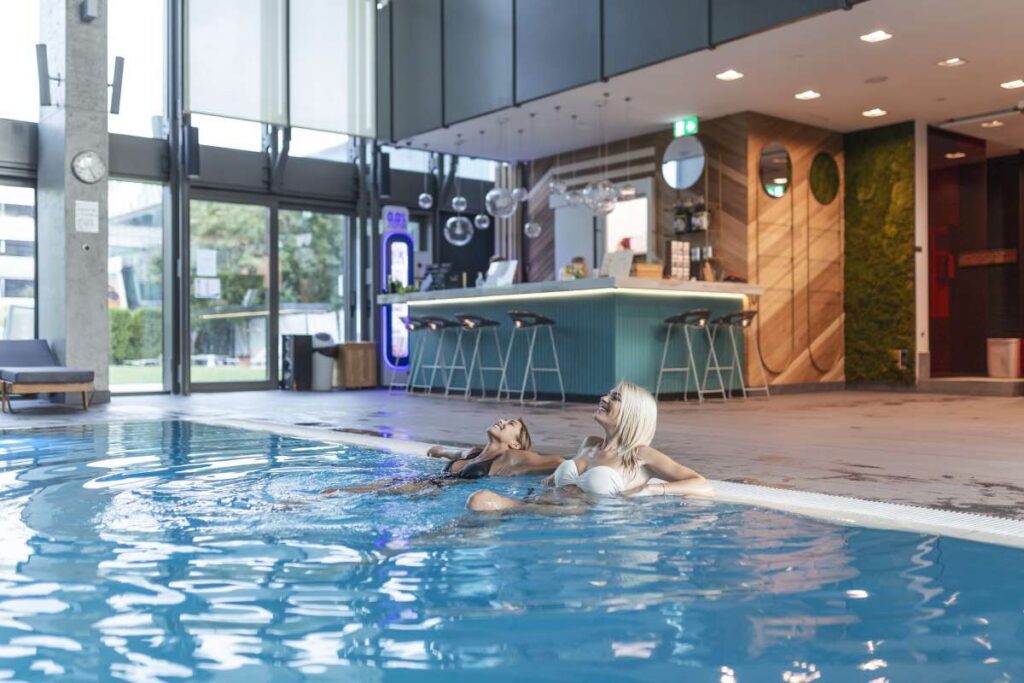Troubleshooting a Noisy Pool Pump: Causes and Fixes
Learn how to troubleshoot a noisy pool pump effectively. Discover the common causes and fixes to ensure your pool operates quietly and efficiently.
Is your pool pump making an unbearable noise? A noisy pool pump can be a significant annoyance, disrupting your tranquil backyard oasis and leaving you uncertain about your pool’s overall health. In this comprehensive guide, we’ll explore the various causes of a noisy pool pump, provide practical fixes, and give you tips to maintain a quieter operation. By understanding how to troubleshoot this common issue, you can ensure your pool remains a peaceful retreat.
Understanding the Importance of a Quiet Pool Pump
– A pool pump is essential for maintaining water quality by circulating and filtering the water.- Noise from the pump not only indicates potential problems but could also disrupt your relaxation time.- Regular maintenance and prompt attention to issues can extend the lifespan of your pump and enhance the overall pool experience.The main function of a pool pump is to keep the water clean and clear. However, when your pump starts making noise, it can be an indication that something is wrong. Ignoring this issue can lead to more significant problems down the line, including decreased efficiency and costly repairs.
Common Causes of a Noisy Pool Pump
Understanding the source of the noise is the first step toward a resolution. Here are some of the most common causes of a noisy pool pump:1. Air Leaks: – Air leaks in the system can lead to increased noise. Check the pump lid, drain plugs, and any joints in the plumbing for potential leaks. – An air leak can cause the pump to work harder, leading to excess noise.2. Cavitation: – This occurs when there is a decrease in water flow, causing bubbles to form inside the pump. Once the bubbles collapse, they generate a loud noise. – Common causes include a dirty filter, low water levels, or an obstructed skimmer.3. Worn Bearings: – Bearings support the motor shaft and help the pump operate smoothly. Over time, these can wear out, leading to grinding or squeaking noises. – If you hear a high-pitched whine or grinding sound, it may indicate bearing failure.4. Loose Parts: – Vibration can cause bolts and screws to loosen over time. Regularly inspect your pump for any loose parts that may need tightening. – Pay attention to the mounting brackets and motor housing.5. Debris in the Impeller: – Leaves, dirt, and other debris can clog the impeller, causing the pump to struggle and produce noise. – Regularly clean your pool and check the pump strainer basket to minimize this issue.6. Improper Installation: – If your pump is not installed correctly, it could lead to various operational problems, including excessive noise. – Ensure that the pump is level and securely mounted to avoid unnecessary vibrations.
Step-by-Step Diagnosis and Fixes
Now that we understand the common causes of a noisy pool pump, let’s delve into the steps for diagnosing and fixing these issues.1. Check for Air Leaks: – Inspect the pump lid and connections. Ensure everything is sealed correctly. – Apply a thin layer of Teflon tape on threaded connections to improve sealing.2. Address Cavitation: – Ensure the water level in your pool is adequate. The skimmer should have enough water to prevent air from entering the system. – Clean or replace your pool filter as needed to maintain optimal flow.3. Inspect the Bearings: – Listen carefully for any unusual sounds when the pump runs. If you suspect worn bearings, consult a professional to replace them. – Lubricate bearings as recommended by the manufacturer to prolong their life.4. Tighten Loose Parts: – Use a wrench to check all bolts and screws connected to your pump. Tighten any that are loose. – Regular maintenance checks can help prevent these issues from arising.5. Clear Debris: – Shut off the pump and inspect the impeller for any obstructions. Remove any debris you find. – Clean the strainer basket regularly to prevent buildup that can lead to noise.6. Verify Installation: – If you suspect improper installation, consult a professional to assess and rectify the installation. – Ensure that the pump is placed on a solid, level surface to minimize vibration.
Preventative Measures for a Quieter Pool Pump
Taking proactive steps can significantly reduce the likelihood of a noisy pool pump. Here are some best practices:- Regular Maintenance: – Schedule routine maintenance checks for your pool equipment. Regular upkeep can catch small issues before they escalate into bigger problems. – Clean the filter and pump basket at least once a month to ensure smooth operation.- Invest in Quality Equipment: – Consider investing in a variable-speed pump. These models operate more quietly and can save energy costs in the long run. – Look for pumps with noise-dampening features or enclosures to minimize sound levels.- Monitor Water Chemistry: – Maintain proper water levels and chemistry to avoid stress on the pump. Imbalanced water can lead to operational issues. – Regularly test your pool water and adjust chemicals as needed.- Use Soundproofing Techniques: – If your pump is particularly noisy, consider adding soundproofing materials around the pump area. This could involve acoustic panels or noise-absorbing blankets. – Ensure that any modifications comply with safety regulations and do not obstruct airflow.
When to Call a Professional
While many issues can be resolved with basic troubleshooting, some situations warrant professional help. Here are scenarios where contacting a pool technician is advisable:- Persistent Noises: – If the noise continues despite attempting to fix it, a professional can help identify hidden issues. – Complex Repairs: – If you suspect significant damage to the pump or motor, it’s safer and more efficient to seek expert assistance.- Electrical Problems: – If the noise comes from electrical components, it’s crucial to contact a qualified electrician to avoid potential hazards.- Overall Maintenance: – Regular professional maintenance can prevent issues from arising and ensure your pool equipment runs smoothly.
Conclusion
Maintaining a quiet pool pump is essential for enjoying your pool and ensuring its longevity. Understanding the causes of noise and implementing the fixes outlined in this guide can help restore peace to your backyard oasis. Regular maintenance and proactive measures will not only keep your pump quiet but also enhance its efficiency, saving you money on energy costs and repairs.If you’re considering starting a pool service business, exploring options like
Pool Routes For Sale can provide you with established accounts and valuable training. Whether you’re a new entrepreneur or an existing service professional, Superior Pool Routes offers the support you need to thrive in the pool maintenance industry. Explore the various
pool routes for sale in Florida, Texas, Nevada, Arizona, and California and begin your journey today!Remember, a little attention goes a long way in maintaining the tranquility of your outdoor space. So don’t hesitate to act—keep your pool pump in check and enjoy a serene swimming environment for years to come!



